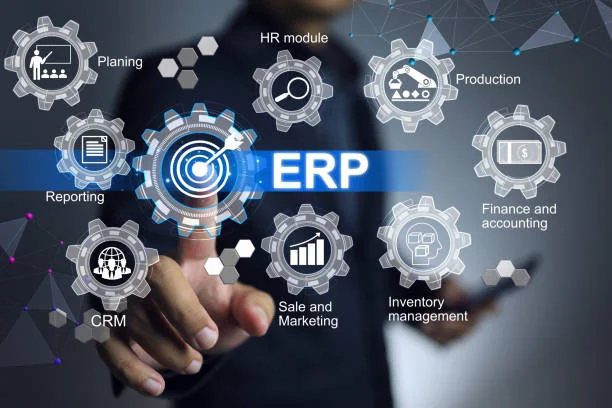In the fast-paced world of manufacturing, staying competitive is more challenging than ever. With supply chain disruptions, labor shortages, and rising customer expectations, businesses must adapt quickly to survive and thrive. One of the most effective tools that manufacturing business can implement to keep up with the demands of 2025 is Enterprise Resource Planning (ERP) software.
An ERP system integrates various functions of your business into a single platform, enabling real-time data flow across departments such as production, inventory, sales, and finance. In this post, we’ll explore why adopting erp solutions for manufacturing in 2025 is not just beneficial but essential for manufacturing business.
Streamlined Operations
In 2025, the complexity of managing multiple production lines, raw materials, supply chain logistics, and workforce demands is only expected to grow. ERP systems bring all these elements under one umbrella, helping manufacturers optimize workflows and eliminate inefficiencies.
For instance, if there is an inventory shortage, the ERP system can immediately alert procurement teams and adjust production schedules accordingly. Similarly, data from the shop floor can be analyzed in real-time, ensuring that any disruptions or delays are swiftly addressed. This level of integration reduces bottlenecks, enhances throughput, and accelerates decision-making.
Still curious? Here’s another read we think you’ll love.
Improved Data-Driven Decisions
Data is king in the digital age, and having access to accurate, real-time information is essential for making informed decisions. With ERP, all departments—from procurement to production to sales—operate on a single source of truth. This provides managers and executives with a holistic view of business performance.
In 2025, manufacturers need to make quick, data-driven decisions to stay ahead of competitors. Whether it’s adjusting production forecasts, optimizing supply chain routes, or even setting pricing strategies, having the right data at your fingertips allows for more precise and agile decisions.
Enhanced Supply Chain Management
The global supply chain has been under significant pressure in recent years. From the COVID-19 pandemic to geopolitical tensions and natural disasters, disruptions are more frequent and severe than ever. In response, manufacturers are shifting towards more flexible, responsive supply chain models.
An ERP system can help manufacturers track inventory levels, monitor supplier performance, and adjust orders based on market demand and lead times. As supply chains become more complex in 2025, having ERP software that offers real-time updates and predictive analytics will be key to minimizing disruptions and ensuring seamless operations.
Better Customer Experience
Customer expectations are higher than ever. They demand personalized products, faster delivery times, and consistent quality. ERP systems enable manufacturers to meet these demands by optimizing production schedules, ensuring product quality, and improving order tracking.
With ERP, businesses can manage inventory in real-time, ensuring that stock levels match customer demand. Additionally, accurate lead times, streamlined order fulfillment, and better quality control processes help ensure that customers receive products when they want them, without compromising on quality.
Cost Efficiency and Resource Optimization
Manufacturing business are always looking for ways to reduce costs without sacrificing quality. ERP software helps businesses reduce operational costs by automating repetitive tasks, minimizing manual errors, and offering better resource allocation.
By optimizing inventory levels and reducing waste, ERP systems can significantly lower material costs. Additionally, having a clear understanding of labor costs, production capacity, and machine uptime ensures that businesses can manage resources more efficiently and make better decisions about investments and capital expenditure.
Scalability and Growth
As your business grows, so does the complexity of your operations. Without a robust system like ERP, scaling operations can lead to chaos—disjointed systems, inconsistent data, and missed opportunities.
ERP platforms are designed to scale with your business, allowing you to add new locations, product lines, or markets without overhauling your entire infrastructure. Whether you’re expanding locally or internationally, an ERP system ensures that your processes remain smooth and consistent.
Compliance and Regulatory Management
Manufacturing business are subject to numerous regulations, whether they’re related to safety standards, environmental requirements, or financial reporting. Compliance is not optional, and the penalties for failing to adhere to regulations can be severe.
An ERP system helps manufacturers stay compliant by keeping accurate records, generating reports, and tracking regulations across different regions. As regulations become more complex in 2025, automated tools within ERP will simplify the process and ensure your business is always up to code.
Conclusion
The year 2025 will be a pivotal time for manufacturing business, with rapid technological advancements and shifting market demands. Adopting an ERP system is no longer a luxury—it’s a necessity for businesses that want to stay competitive, streamline operations, and enhance customer satisfaction.
From better data analytics to improved supply chain management, ERP systems offer manufacturers the tools they need to thrive in an increasingly complex and fast-moving business environment. If you haven’t yet implemented ERP in your manufacturing business, now is the time to start planning. The future of manufacturing depends on it.
To explore all our latest posts in one place, be sure to visit the 2A Magazine.







